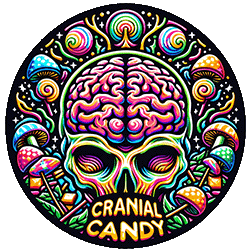Introduction to the Psychedelic Therapy Movement
The concept of using psychedelics in mental health therapy has garnered renewed interest in the medical and psychological communities. This resurgence is marked by a reevaluation of the potential therapeutic benefits of substances like LSD, Psilocybin, and MDMA. This section introduces the topic, highlighting the shift from historical skepticism to a growing body of research supporting the therapeutic use of psychedelics.
Early Explorations and Research
The journey of psychedelics in therapy began in the mid-20th century. Researchers and therapists started exploring the use of LSD and other hallucinogens as tools for psychological exploration and treatment. During this early period, psychedelics were used experimentally to treat various mental health disorders, including depression, anxiety, and addiction. The initial results were promising, indicating potential benefits in facilitating deeper emotional processing and helping patients gain new perspectives on their mental health issues.
The Halt in Psychedelic Research
Despite early successes, research into psychedelic therapy faced significant setbacks during the 1960s and 1970s. The growing recreational use of psychedelics, coupled with political and cultural pressures, led to stringent regulations and a halt in most psychedelic research. These substances became classified as Schedule I drugs, indicating a high potential for abuse and no accepted medical use, which severely restricted their availability for clinical research.
A Cultural and Scientific Shift
For several decades, the potential of psychedelics in therapy remained largely unexplored due to these regulatory constraints. However, the 21st century brought a renewed interest in this field, spurred by cultural shifts and a reevaluation of previous research. Scientists began revisiting the therapeutic potential of psychedelics, leading to a new wave of studies and clinical trials.
Reviving Psychedelic Research
The revival of interest in psychedelic therapy is characterized by more rigorous scientific approaches and a better understanding of mental health disorders. Modern research has focused on controlled, clinical settings, ensuring the safety and well-being of participants. This renewed exploration has reignited interest in the therapeutic possibilities of psychedelics, setting the stage for a potential paradigm shift in mental health treatment.
Revitalized Research in Psychedelic Therapy
In the realm of mental health, recent years have seen a significant resurgence in research on psychedelics. This new wave of studies is exploring the therapeutic potential of substances like LSD (Lysergic Acid Diethylamide), Psilocybin (found in magic mushrooms), and MDMA (3,4-Methylenedioxymethamphetamine) for treating various mental health conditions. Unlike earlier research, contemporary studies are more controlled, sophisticated, and backed by advanced scientific methodologies.
LSD in Modern Psychotherapy
LSD, once known for its role in the counterculture movements of the 1960s, is now being re-examined for its potential in therapeutic settings. Modern clinical trials are exploring LSD’s efficacy in treating conditions such as anxiety, particularly anxiety associated with life-threatening diseases, depression, and PTSD. These studies are investigating how LSD, in conjunction with psychotherapy, can help patients achieve significant breakthroughs in their treatment.
Psilocybin and Its Therapeutic Applications
Psilocybin, the psychoactive compound in magic mushrooms, has garnered attention for its potential to treat depression, end-of-life anxiety, and certain types of addiction. Clinical trials have shown that Psilocybin can induce profound and lasting changes in mood, perception, and a sense of connectedness, which can be therapeutically beneficial. Notably, research is focusing on how a single dose of Psilocybin, coupled with psychotherapy, can produce significant and enduring reductions in symptoms of depression and anxiety.
MDMA-Assisted Therapy for PTSD
MDMA, commonly associated with its recreational use as Ecstasy, is at the forefront of research for treating PTSD (Post-Traumatic Stress Disorder). Clinical trials are investigating how MDMA-assisted psychotherapy can help patients process traumatic memories and reduce the emotional pain associated with these memories. Preliminary results have been promising, showing that MDMA can increase feelings of trust and compassion, aiding in the therapeutic process and potentially leading to significant improvements in PTSD symptoms.
The Path Forward in Psychedelic Research
The current research on LSD, Psilocybin, and MDMA is not only redefining our understanding of these substances but also paving the way for potential new treatments in mental health. These studies are crucial in determining the safety, efficacy, and appropriate therapeutic contexts for these psychedelics. As research progresses, it is raising hopes for alternative treatments that could benefit individuals who have not found relief through traditional psychiatric medications and therapies.
Understanding the Brain on Psychedelics
The therapeutic effects of psychedelics in mental health treatment are closely tied to their unique mechanisms of action in the brain. Substances like LSD, Psilocybin, and MDMA interact with various neurotransmitter systems, but most notably, they affect the serotonin system. Serotonin is a key neurotransmitter involved in mood regulation, perception, and cognition.
LSD and Psilocybin: Serotonin Receptors and Neural Connectivity
LSD and Psilocybin primarily interact with serotonin receptors, particularly the 5-HT2A receptor. This interaction is believed to result in the altered states of consciousness and perception typically associated with these substances. Research suggests that these psychedelics promote increased neural connectivity and a temporary disintegration of the default mode network (DMN) in the brain, which is involved in self-referential thought processes. This disruption of the DMN may be why patients report experiencing a dissolution of ego and a sense of oneness with the universe, often leading to new perspectives on their lives and problems.
MDMA: Emotional Processing and Trauma Therapy
MDMA’s mechanism of action differs from that of classical psychedelics. It primarily increases the release of serotonin, dopamine, and norepinephrine, while also enhancing the release of hormones like oxytocin and prolactin. These effects contribute to heightened empathy, reduced fear response, and increased emotional openness. In the context of therapy, MDMA’s effects can allow patients with PTSD to process traumatic memories more effectively, as the drug reduces the emotional pain associated with these memories and fosters a sense of trust and safety.
Psychedelic-Assisted Psychotherapy
A key aspect of the therapeutic use of psychedelics is their combination with psychotherapy. This approach, known as psychedelic-assisted psychotherapy, involves administering a psychedelic substance in a controlled, therapeutic setting, accompanied by counseling or psychotherapy. This combination can facilitate deep psychological insights, emotional release, and the reprocessing of traumatic memories, which can be transformative for patients who have been resistant to traditional treatments.
Potential Benefits and Lasting Changes
Patients who have undergone psychedelic-assisted therapy often report lasting changes in their mental health, including reduced symptoms of depression, anxiety, and PTSD. These changes can be attributed to the profound, often life-changing experiences during the psychedelic session, coupled with insights gained during therapy. The therapeutic effects of psychedelics are not solely due to the chemical action on the brain but also due to the psychological and emotional insights they facilitate.
Navigating the Challenges in Psychedelic Research
One of the primary hurdles in psychedelic research is navigating the legal and regulatory landscape. Due to their classification as Schedule I substances in many countries, there are significant barriers to conducting research. These legal restrictions have historically limited scientific exploration and understanding of these compounds. Furthermore, societal stigma and misconceptions about psychedelics add another layer of complexity, often affecting funding and public support for research.
The Current Legal Status of Psychedelics
The legal status of substances like LSD, Psilocybin, and MDMA varies globally. In most places, these psychedelics are still classified as illegal drugs with no accepted medical use. However, recent years have seen a shift, with some jurisdictions granting exemptions for research purposes or even decriminalizing these substances. This changing legal environment is a response to the growing body of evidence supporting the therapeutic potential of psychedelics.
Psychedelic Therapy in Clinical Practice
Despite the legal hurdles, several clinical trials are underway, exploring the use of psychedelics in treating mental health disorders. These trials are crucial in establishing the safety, efficacy, and appropriate therapeutic contexts for these substances. The results of these studies will play a significant role in shaping the future of psychedelic therapy, potentially leading to reclassification and wider acceptance in medical practice.
Looking Towards the Future
The future of psychedelic therapy holds promising potential. With continued research and a better understanding of these substances, psychedelics could become valuable tools in mental health treatment. There is a growing hope that these substances will offer new avenues for treating conditions that are currently difficult to manage with conventional therapies.
Conclusion: Psychedelics as a Transformative Tool in Mental Health
Psychedelics have the potential to revolutionize mental health treatment, offering new perspectives and therapeutic options. The profound experiences induced by these substances, combined with psychotherapeutic support, can lead to significant improvements in various mental health conditions. As research progresses, it is crucial to approach psychedelic therapy with an open mind, rigorous scientific standards, and a commitment to understanding both its possibilities and its limitations.





